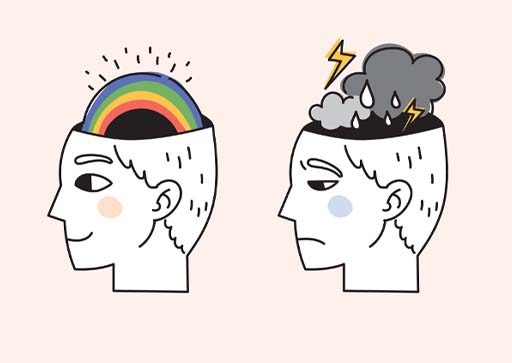2 What do we mean by ‘health’ and ‘mental health’?
Can you be healthy without good mental health? Ever since 1946, the World Health Organization’s original definition of health has been upheld:
‘Health is a state of complete physical, mental and social well-being and not merely the absence of disease or infirmity’.
You’ll see that it takes a very wide view of health that includes the mental and social. Certainly, if your mental health were poor you would feel unwell, or at least lack a sense of wellbeing. Many healthcare professionals and researchers argue, however, that the perfect state of health and wellbeing described above is unattainable. Taking this argument further, perhaps it is even harmful for our mental health to suggest that we should somehow aim for this unachievable goal.
Physical and mental health are interdependent, so for example, people who are living with a long-term chronic health condition such as type 1 diabetes or cystic fibrosis may experience challenges to their mental health. Conversely, people who are experiencing mental illness may take less care of their physical health or engage in behaviours that exacerbate their mental health difficulties. Either way, individuals who are unwell will experience a combination of symptoms and challenges that are likely to be physical, mental and social.

